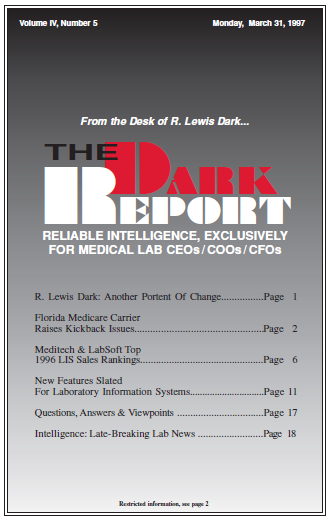CEO SUMMARY: When Florida’s Medicare carrier published a notice which defined certain pathology practices to be possible violations of anti-kickback laws, it created uncertainty for labs. DIANON took immediate steps to insure compliance while seeking clarification from regulators on this issue. Developments in Florida signal that regulators may be preparing to target laboratories for more …
Florida Medicare Carrier Raises Kickback Issues Read More »
To access this post, you must purchase The Dark Report.


